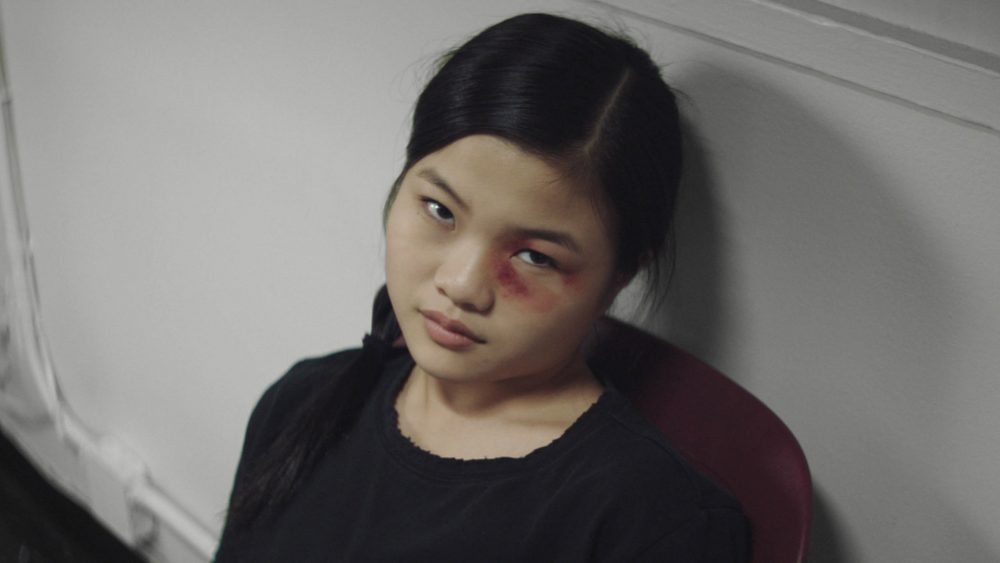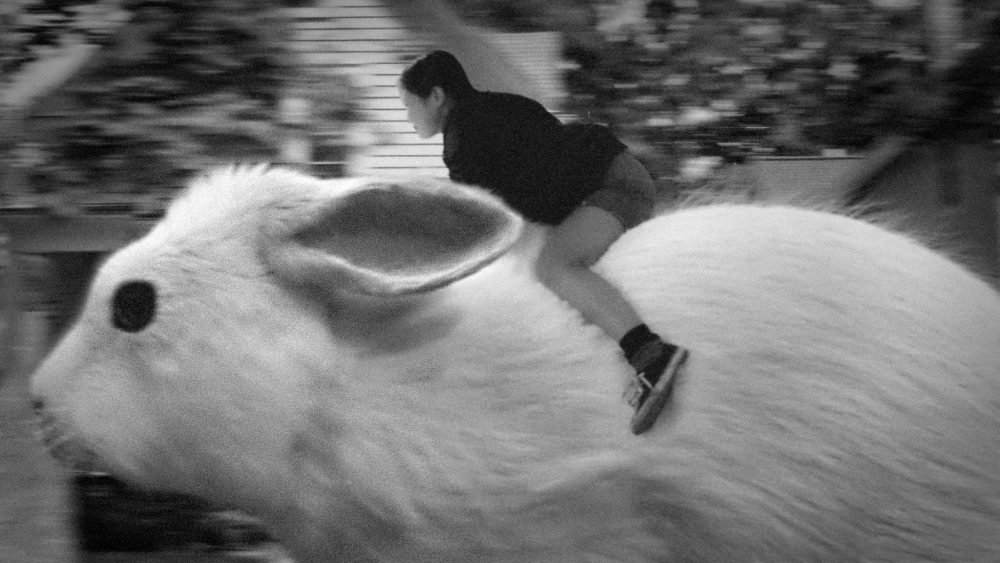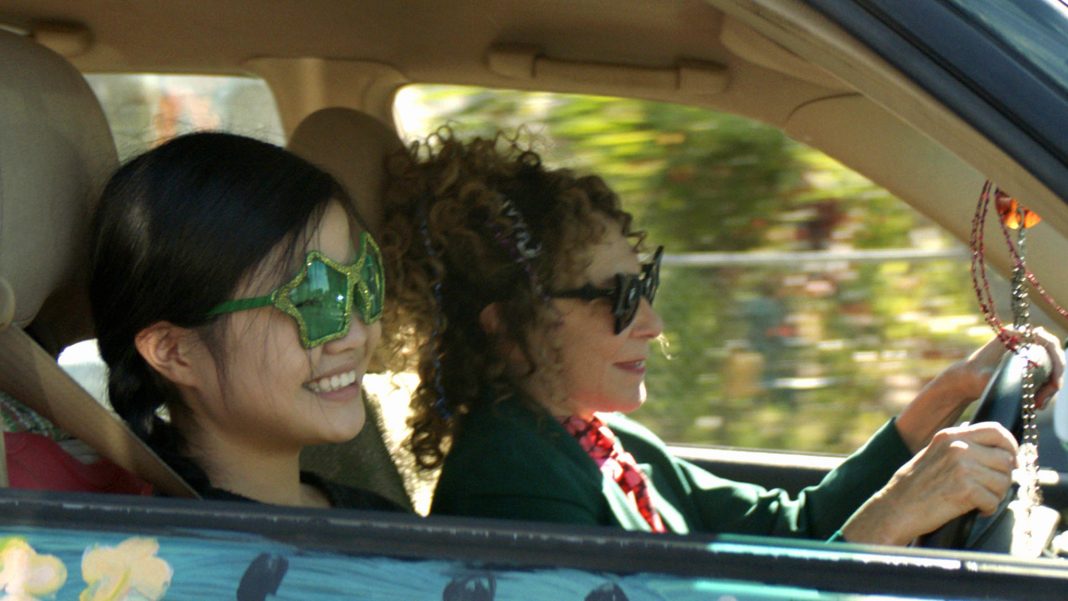Kate Tsang‘s Marvelous and the Black Hole is a coming-of-age story about a young girl named Sammy, who is navigating her own grief and changing family dynamics. While ultimately a predictable story, Marvelous is enchanting and quirky. It’s a decent show for Tsang’s debut feature film and a strong performance from the lead Mia Cech.
The main story beats of the film are as expected. After the death of her mom (Jae Suh Park), the thirteen-year-old Sammy is at a crossroads in her life. Increasingly disobedient, rebellious, and reckless, she is having a hard time managing her own grief. On top of that, her father, Angus (Leonardo Nam), is about to propose to his girlfriend Marianne (Pauline Lule). Sammy longs for the days of the past. She listens to her mother’s old tape recordings of the story of Chang’e, the moon goddess, over and over again in order to hold onto the memory of her.
In a last-ditch effort to give her some structure, Angus orders Sammy to go to summer school or else be shipped off to a boarding school. Despite Sammy’s acerbic tone and scowling face, it’s hard not to empathize with a teenager who is clearly going through some grief. Angus is often shown to be overworked and although his effort to move on is commendable, he seems lost when it comes to raising his daughters. Struggling with repressed emotions and teenage rage, Sammy faces these bouts of fury by tattooing x’s on her thigh in a move that clearly signals self-harm.

It is at this point in her life when she happens upon Margot (Rhea Perlman), a kooky older woman who works as a stage magician primarily performing for children. Sensing Sammy’s angst and inner turmoil, Margot turns her into a magician’s assistant and offers her the opportunity to learn the craft. Margot is quirky and colorful, but Perlman’s performance manages to keep her grounded with an astute eye and matter-of-fact tone. Cech and Perlman have good chemistry and work well together on screen together, both of them able to uplift a scene and make it more than the sum of its parts.
Directed and written by Tsang, with an Asian American family at the center of the story, the nods to Asian culture are what makes Marvelous and the Black Hole hit differently for me. We see glimpses of black and white wuxia films on television before we dive into Sammy’s imagination where she puts her mother (Jae Suh Park) into the role of an imagined Chang’e. Sammy’s interest is piqued by the phrase “oriental magic” in her magic book, only to be disappointed when the book’s suggestion is simply for the magician to put on yellow face. It isn’t overt or in your face, and the story isn’t ever about Sammy and her family’s race, but neither has their culture been erased from the film.
In the end, magic becomes a healthy outlet for Sammy to deal with her own grief and move past it. The magic itself is simple but charming, with enough illusion and smoke to pepper in a bit of flavor to the performance. Sammy is able to heal and grow, and she inspires Margot herself to heal and confront her own past traumas. Enjoyable and short, Marvelous and the Black Hole tells the story it seeks out to tell with a bit of magic and flair, ultimately winning me over with the lead performances.

This film review was based on the premiere at Sundance Film Festival 2021. Photo by Nanu Segal | Courtesy of Sundance Institute.







